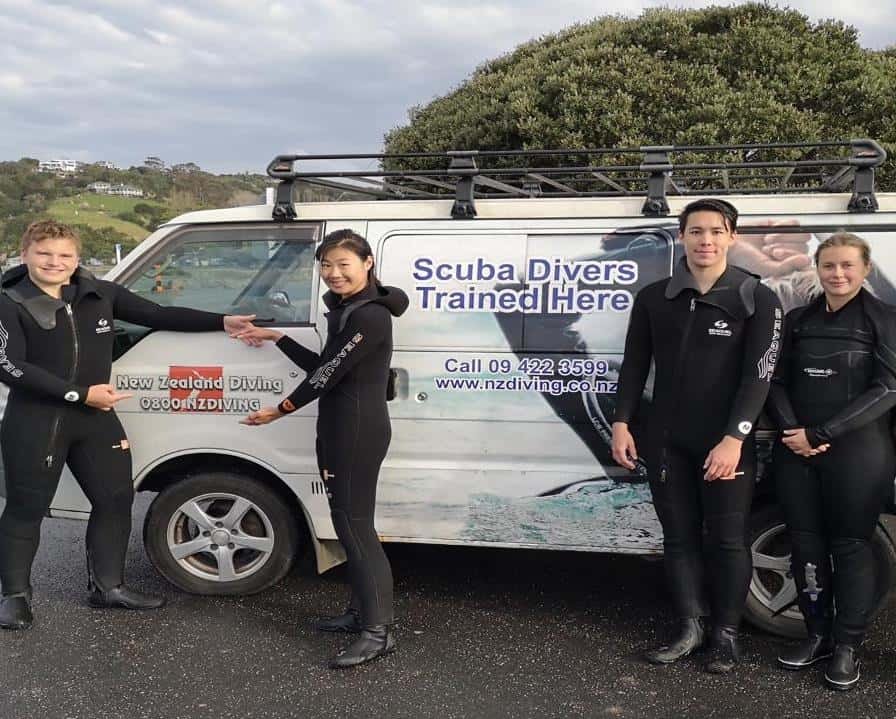SOLO DIVER CERTIFICATION
HOW OFTEN ARE YOU ALONE?
At one point or another, a diver has found himself alone during a dive, whether it is intentional or not. SDI’s Solo diver certification is the practice of self reliant scuba diving without a “dive buddy”.
Solo diving, once considered technical diving and discouraged by most certification agencies, is now seen by many experienced divers and agencies as an acceptable practice for those divers suitably trained and experienced. Rather than relying on the traditional buddy diving safety system, solo divers should be skilled in self-sufficiency and have willingness to take responsibility for their own safety while diving.
One of SDI’s most popular courses, the solo diver course teaches experienced recreational divers how to safely dive independently of a dive buddy or strengthen your buddy team skills. The course stresses on proper dive planning, personal limitations, accident prevention as well as the benefits, hazards, and proper procedures for diving solo. You will also learn the additional equipment that is required for solo diving including its proper usage and assembly. This is the perfect course for underwater photography and underwater video divers as well as those diving with their children or buddies that may not be very experienced in scuba diving.
DIVE COURSE HIGHLIGHTS
Who this course is for:
The certified SDI Advanced Diver (or equivalent) who is interested in learning how to dive independent of a dive buddy, or looking to strengthen your buddy team diving skills.
Additional courses that would be beneficial & complementary are the O2 Administration and a First Aid certification
DIVE COURSE DETAILS & INCLUSIONS
What you can expect to learn:
The SDI Solo Diver course takes an in-depth look at all of the following and more:
- Why solo dive?
- History of buddy diving
- Pros and cons of buddy diving and solo diving
- Legal liability assumed by buddy diving
- How to use the SDI Solo Diving waiver and release
- Who must solo dive?
- The solo diving mentality
- When not to solo dive
- Equipment for solo diving
- Planning and conducting a solo dive
- Navigation
- Management of solo diving emergencies
- Review the SDI Solo Diver Liability Release and Express Assumption of Risk Agreement Form
DIVE COURSE ITINERARY
New Zealand Diving is one of the only centre’s in New Zealand able to offer and teach this certification. Contact us for further information on the Solo diver certification.
UNDERSTANDING THE RISKS
Diving is an adventure activity that includes risk to your person. Under New Zealand law we are we required to notify you of the following statement.
You accept that this activity inherently involves risks and potential hazards. The risks and hazards include, but are not limited to breathing compressed gas, marine traffic, marine life, decompression sickness, drowning, barotrauma, air embolism, decompression illness, dehydration, gas narcosis, malfunctioning equipment, ear problems, sun damage, hyperthermia, hypothermia, sea sickness, and adverse weather events.
These activities are run in the outdoors on the ocean, so may be exposed to sudden natural disasters such as, but not limited to Tsunami, Earthquakes, Slips Landslides or Rock Falls, or Volcanic Eruption. I am aware that participating in the activities offered by New Zealand Diving Limited can be hazardous even if they are conducted with care, control, and responsibility. You acknowledge that these risks could result in my injury (physical or mental) or even death.
TERMS & CONDITIONS
Please read our terms & conditions found on our website page, frequently asked questions before booking: https://nzdiving.co.nz/faq/
Sometimes our activities may have to be rescheduled due to situations outside of our control, such as poor weather. Please note we reschedule in such situations, as described in our terms and conditions.
Overseas participants are advised to carry travel insurance in case rescheduling is unsuitable.
All participants must be of good health and complete a medical declaration. This is available on our website: https://nzdiving.co.nz/faq/
All participants must be diving certified to dive on a charter or undergoing a diving course with New Zealand Diving Limited.
All participants must be able to swim a minimum of 200m, unassisted.
WHAT TO BRING
Although we can hire you some equipment, we strongly recommend you own all of your own normal dive gear.
SOLO DIVER CERTIFICATION

AT A GLANCE
When you consider most hunters or photographers & videographers dive alone, separated from their buddy, it is not hard to imagine how important this course is. Take the Solo diver certification and learn the skills needed to survive alone.

